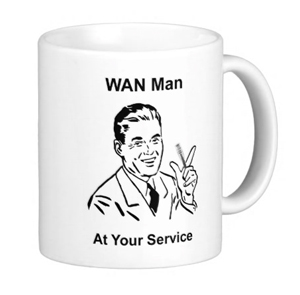By: John Shepler
Businesses now have more choices than ever when it comes to broadband internet. Let’s examine the available solutions suitable for companies of all sizes.
Gigabit internet is the ideal scenario for most, but affordability can be a concern. Medium to large companies in most areas, and even smaller businesses in specific locations, might find it within reach.
Location, Location, Location
Your business address significantly impacts both the available services and their costs. Connectivity options are abundant in major metropolitan areas with competitive pricing. Similarly, large business parks are well-equipped, while smaller towns and rural areas have limited options. Nevertheless, some form of broadband internet is typically accessible regardless of location.
Gigabit Possibilities
Gigabit Ethernet over Fiber is currently the leading Gigabit internet service for businesses. More modern and affordable than SONET, it offers seamless connectivity. Since it’s essentially an extension of the Ethernet used in local area networks, businesses benefit from familiarity and ease of integration. While SONET remains a viable option embedded in numerous networks, Ethernet’s compatibility with both SONET and native fiber deployment, along with competitive pricing, makes it attractive.
Carrier Ethernet’s scalability is another advantage. Businesses can start with a Gigabit-capable fiber connection while utilizing only 100 Mbps, upgrading as their needs grow without equipment changes.
Beyond Gigabit
The increasing reliance on cloud-based data centers and high-performance applications demands even faster internet speeds. While Gigabit connectivity becomes the norm, some businesses require more. Thankfully, locations with Ethernet over Fiber can often access 10 Gbps or even 100 Gbps in major markets.
Sub-Gigabit Choices
Businesses with moderate needs, ranging from 50 to 500 Mbps, have several options. Rate-limited Gigabit Ethernet is one, while traditional DS3 service at 45 Mbps is another, often delivered over fiber.
Business cable broadband is another contender, often offering speeds up to 100 Mbps and sometimes 300 Mbps. Gigabit cable service might be available in certain areas. However, shared bandwidth, speed fluctuations, asymmetrical upload/download speeds, and the lack of service-level agreements are drawbacks. Still, it’s a budget-friendly choice if cable infrastructure is available.
Smaller Needs
Smaller businesses, primarily using the internet for email, web browsing, and online purchases, might find 50 Mbps excessive. Cable broadband at 30 Mbps or Ethernet over Copper, offering symmetrical speeds between 5 to 50 Mbps, are cost-effective alternatives.
Although only offering 1.5 Mbps, T1 lines provide reliable connectivity for credit card transactions and email, especially in areas with limited options. Satellite broadband is another option where power and a clear view of the southern sky are available. However, data caps and latency issues can hinder performance.
SDN: The Future of Connectivity?
Software Defined Networks (SDN) are rapidly gaining traction. By intelligently managing multiple internet connections, SDNs enhance network performance and affordability, even incorporating lower-cost options.
Determining the best business internet solution depends on individual requirements. Comparing quotes for various services can help determine the ideal fit.


